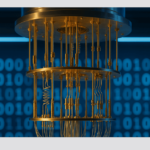In the high-speed world of technology, where product launches, code reviews, and new frameworks keep coming at lightning pace, it’s easy to get caught in the grind. But behind the scenes of innovation lies a very real issue — work and life balance in the tech industry. It’s not just a wellness buzzword anymore; it’s a survival strategy.
Table of Contents
As the digital economy matures, the challenge of staying productive without burning out is becoming central to conversations across tech workplaces. Developers, designers, engineers, and entrepreneurs alike are all searching for ways to stay effective at work while actually living a life outside it.
This guide breaks down why balance is harder in tech, how it’s affecting professionals in 2025, and most importantly — what you can do about it.
Why Work and Life Balance Is a Real Struggle in Tech
The tech industry thrives on speed and innovation, but those same traits can create a culture of overwork. In 2025, most tech professionals work remotely or in hybrid setups, which often erases the clear lines between work and home. Add to that the constant updates in tools, languages, and frameworks, and suddenly “logging off” feels like falling behind.
A recent Gitnux report showed that over 57% of tech workers report burnout, while more than 70% work beyond their contracted hours. The issue isn’t laziness or poor time management — it’s the nature of the job. Whether it’s late-night bug fixes or pushing MVPs before deadlines, the pressure is built into the system.
Creating Digital Boundaries in a 24/7 Industry
One of the first steps to a healthier work and life balance is learning to separate your work from the rest of your life — digitally. With tools like Slack, Discord, Jira, and GitHub sending alerts all day, it’s easy to feel “on-call” 24/7.
But this constant connectivity is draining. Start by establishing strict working hours and sticking to them. Mute notifications outside those hours. Turn off email alerts after work. Use apps that help you focus by blocking distractions or scheduling downtime. These aren’t just tools — they’re shields for your mental energy.
Mastering Time-Blocking to Work Smarter
Rather than multitasking your way through the day, time-blocking helps you divide your workday into focused segments. You dedicate specific time slots for coding, meetings, learning, or even breaks. This not only improves productivity but also creates natural pauses in your schedule to rest or reflect.
Using tools like Google Calendar or Notion, you can plan each day in advance, reduce mental clutter, and protect your personal time from work overflow. It’s a structure that works especially well for tech professionals juggling multiple sprints and side projects.
Breaks Are Not Optional — They’re Critical
In a world where output is often mistaken for worth, breaks can feel like a guilty pleasure. But research shows that regular, intentional breaks actually enhance focus and creativity. Techniques like the Pomodoro Method (25 minutes of work followed by a 5-minute break) are simple yet powerful in tech workflows.
And when it comes to bigger breaks — take them. Step outside. Make a cup of tea. Chat with a friend. These tiny moments add up to a healthier mindset and reduce long-term fatigue.
Making Remote Work Actually Work for You
Remote work is one of tech’s biggest perks, but it can also blur boundaries. Without a commute or a designated workspace, your home becomes your office — and often your stress zone.
To fix this, create a work-only space at home, even if it’s just a desk in the corner. Start your day with a morning ritual and shut down with an evening routine. Avoid working from your bed or couch. When your environment sends the right signals, it becomes easier to mentally switch off from work.
Mental and Physical Wellness Must Be Non-Negotiable
Working in tech demands mental sharpness — but that clarity only comes when your mind and body are cared for. Simple habits like walking, stretching, meditating, or journaling can greatly impact your well-being and performance.
Don’t treat self-care like an add-on. Prioritize sleep. Stay hydrated. Move your body. And if you’re feeling overwhelmed, talk to someone — whether it’s a friend, mentor, or mental health professional. Wellness isn’t an indulgence; it’s the fuel for your future.
Knowing When to Say “No” or “Not Now”
It can be tempting to say yes to every opportunity — especially in a competitive field like tech. But not every task or meeting deserves your time. If it doesn’t serve your long-term goals or adds unnecessary stress, it’s okay to say no.
Respecting your limits is part of maintaining balance. Choose work that aligns with your values and bandwidth. Let your focus determine your schedule — not other people’s expectations.
Paid Time Off Isn’t a Luxury — It’s a Right
One of the most overlooked tools in maintaining balance is simple: use your time off. Tech workers often leave vacation days unused, either out of guilt or fear of falling behind.
But those breaks aren’t just allowed — they’re encouraged. Time off is part of your compensation. Use it to recharge, explore hobbies, spend time with loved ones, or just rest. You’ll return sharper, stronger, and more motivated.
The Role of Companies in Encouraging Balance
While individuals can take steps toward balance, companies need to play their part too. Progressive tech firms in 2025 are rethinking culture to prioritize:
- 4-day workweeks
- Mental health days
- Flexible hours
- Wellness budgets
- Asynchronous communication
If your current environment makes balancing between work and life impossible, don’t be afraid to speak up — or seek out companies that genuinely support their teams.
Final Thoughts: You Can Build a Career Without Burning Out
In the tech world, where innovation never stops and there’s always another tool to learn, balancing both work and life may feel impossible. But it isn’t. With intentional structure, personal boundaries, and the right mindset, you can thrive without sacrificing your mental peace or personal life.
Remember, a fulfilling tech career isn’t built on constant hustle — it’s built on sustainable energy, passion, and balance. So, go ahead — close that laptop, take a break, and live the rest of your life too. Your future self will thank you.





